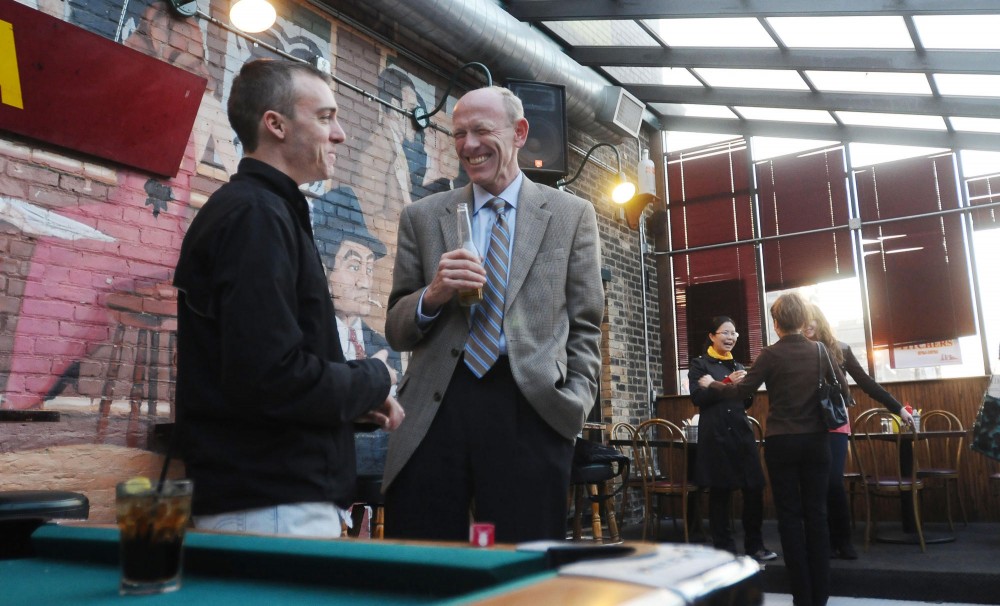Dean of Graduate Education Henning Schroeder held a bottle of Corona at Stub and Herbs while listening to about 20 graduate students’ concerns Wednesday night.
Since last fall, Schroeder has hosted a “Henning Happy Hour” every month to meet with graduate students and discuss concerns or answer questions.
“I want to find out what they’re interested in and what’s on their plate,” Schroeder said. “There hasn’t been something like this before that allows everyone to come and give feedback.”
At the informal meet-and-greet, graduate students could approach Schroeder on their own and bring up concerns like tuition increases and curriculum requirements.
Attendance at the meetings has fluctuated from about 10 students to sometimes more than 30. Last month, the happy hour drew a much smaller crowd than usual so Council of Graduate Students President Emily Combs decided to increase her efforts to boost turnout.
Usually the happy hour is advertised in the COGS newsletter and on the website, but this time Combs sent out an email the day of the event to help forgetful students.
Combs said Wednesday’s happy hour was a success.
“It was about the number I’d hoped for and we saw a lot of new people,” she said. “Some people that wouldn’t have met him otherwise did and he got some new perspectives on the University [of Minnesota].”
Some students simply introduced themselves in order to get to know the dean a little better. Yet many of them had concerns about matters like why so much course work is required before students are allowed to do research. Schroeder agreed and cited multiple problems with graduate education.
“There are many other ways students can get information other than the classroom,” he said. “But graduate education isn’t as modern as it should be.”
First-year graduate student Chris Wenig brought up athletics, costs and a little bit of politics. His biggest concern was the drastic increases in tuition.
“[Schroeder] was actually surprised students haven’t been up in arms and walking through the streets about it,” Wenig said.
This semester, his tuition increased $500 and after bringing it up, Schroeder said he would look into it.
“I’m paying $1,000 a credit so it would be good to know where our finances go,” Wenig said.
In the past, students have come forward on a number of issues including anything from questions about turning in forms to concerns over flexibility and requirements in the curriculum.
“Students come to graduate school to do research,” Schroeder said. “But a lot of things in their programs were keeping them from doing that.”
Some courses that students need to graduate were only offered every other year. After learning about these concerns, the graduate program has increased the flexibility in the curriculum. Graduate students also now have a maximum credit load of 72 credits.
Conversations at the happy hour don’t always circle around graduate studies, though. Schroeder said nearly all meetings end up having lively conversations about things other than education issues.
“At the first happy hour [the students] were surprised I ordered a Corona,” he said.
The Germany native had a much different graduate experience than most students at the University. When he received his Ph.D. in pharmacology from Düsseldorf University in 1985, he was the only graduate student in the program.
“I didn’t really have the experience of doing my own research,” Schroeder said. “It’s important that grad students are educated in their program because I didn’t have that.”


